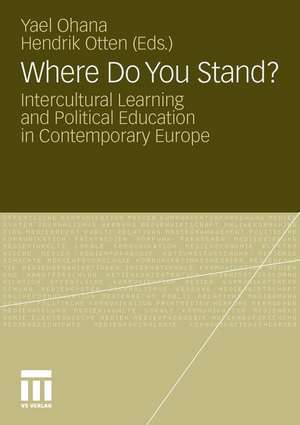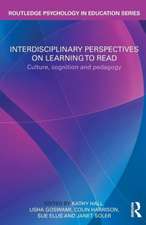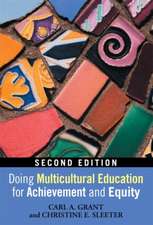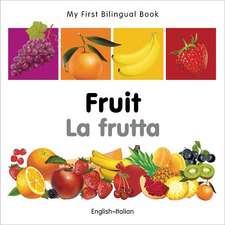Where Do You Stand?: Intercultural Learning and Political Education in Contemporary Europe
Editat de Yael Ohana, Hendrik Ottenen Limba Engleză Paperback – 14 dec 2011
Preț: 352.63 lei
Nou
Puncte Express: 529
Preț estimativ în valută:
67.48€ • 70.63$ • 56.16£
67.48€ • 70.63$ • 56.16£
Carte tipărită la comandă
Livrare economică 31 martie-14 aprilie
Preluare comenzi: 021 569.72.76
Specificații
ISBN-13: 9783531180311
ISBN-10: 3531180312
Pagini: 280
Ilustrații: 276 p. 2 illus.
Dimensiuni: 148 x 210 x 15 mm
Greutate: 0.36 kg
Ediția:2012
Editura: VS Verlag für Sozialwissenschaften
Colecția VS Verlag für Sozialwissenschaften
Locul publicării:Wiesbaden, Germany
ISBN-10: 3531180312
Pagini: 280
Ilustrații: 276 p. 2 illus.
Dimensiuni: 148 x 210 x 15 mm
Greutate: 0.36 kg
Ediția:2012
Editura: VS Verlag für Sozialwissenschaften
Colecția VS Verlag für Sozialwissenschaften
Locul publicării:Wiesbaden, Germany
Public țintă
Professional/practitionerCuprins
Retrospectives. - Perspectives.
Notă biografică
Yael Ohana is a specialist in non-formal education and international youth work. She is the co-founder of and principal project officer at “Frankly Speaking – Training, Development & Research”, a small educational consultancy, based in Bratislava, Slovakia & Berlin, Germany.
Dr. Hendrik Otten is a specialist of political education. He is the director of the Institute for Research in Applied Communication (IKAB) in Bonn, Germany.
Dr. Hendrik Otten is a specialist of political education. He is the director of the Institute for Research in Applied Communication (IKAB) in Bonn, Germany.
Textul de pe ultima copertă
This book considers the many and often controversial debates about the theoretical underpinning, ideological positioning and political significance of intercultural learning in and for the European youth field. Its starting point is the current de-politicisation of intercultural learning in the field, which sees it as a central approach.
Contributors challenge the elevation of intercultural dialogue to panacea for all societal problems from civil war to educational failure, the problematic position of notions of culture at the heart of intercultural learning practice and much of the accepted wisdom on the purposes, contents, approaches and methods of intercultural learning and on the competences required of those delivering it. In an attempt to breathe new life into what is criticised as a stagnant debate, this book asks all those concerned with political education and intercultural learning to rethink where they stand in relation to the theoretical foundations and basic principles of an educational practice that seems to be in need of radical re-politicisation if it is to live up to the contemporary challenges putting its mobilisational capacity to the test.
Contributors challenge the elevation of intercultural dialogue to panacea for all societal problems from civil war to educational failure, the problematic position of notions of culture at the heart of intercultural learning practice and much of the accepted wisdom on the purposes, contents, approaches and methods of intercultural learning and on the competences required of those delivering it. In an attempt to breathe new life into what is criticised as a stagnant debate, this book asks all those concerned with political education and intercultural learning to rethink where they stand in relation to the theoretical foundations and basic principles of an educational practice that seems to be in need of radical re-politicisation if it is to live up to the contemporary challenges putting its mobilisational capacity to the test.
Caracteristici
Intercultural Learning and Political Education in Contemporary Europe











